Black History Month is often about dusting off the archives and uplifting the names of figures who paved the way for the privileges we currently enjoy. You know, the Martin Luther King Jr.’s, Malcolm X’s and Rosa Parks’ of the world. If we’re lucky, LGBTQ2 folks like James Baldwin, Langston Hughes and Audre Lorde are included. But with all due respect, I’m a little over the same ol’, same ol’ when it comes to recognizing our history. So, I’m taking it upon myself to liven up our month-long celebration of Black excellence. When I think of key moments in Black history, I conjure up more recent instances in pop culture where Black queer and trans people triumphed—everything from RuPaul’s Drag Race lip syncs and American Idol performances to legendary characters on the big screen. With that in mind, I’ve put together some of my favourite pop culture moments worthy of our Black History Month adulation.
Lafayette serves up burgers “with a side of AIDS”
In the first season of True Blood, the late Nelsan Ellis played everyone’s favourite chef, Lafayette Reynolds. The lifeblood of the vampire series, Lafayette was also a Black gay character, which television hadn’t really seen much of before 2008. He was both flamboyantly feminine and aggressively masculine, bucking all sorts of stereotypes and expectations. Nothing personifies this more than the infamous “AIDS burger” scene in which a table of bigots refuse to eat a burger he’s prepared because they think they’ll contract the virus from him. Right before Lafayette shoves the meal in the guy’s face, delivering an ass-whooping I’m sure they’re still reeling from, he delivers a line that was—and is—music to my ears: “Faggots been breeding your cows, raising your chickens, even brewing your beer long before I walked my sexy ass up in this motherfucker.”
Moonlight Kanye-d La La Land
Remember when Kanye West interrupted Taylor Swift’s acceptance speech at the 2009 MTV Video Music Awards? She had just won the award for best female video for her song “You Belong with Me” over Queen Beyoncé’s “Single Ladies,” and the rapper just had to let the world know that he didn’t think she deserved it. Flash forward to the 2017 Oscars, when it was announced that La La Land had won Best Picture, apparently beating out Moonlight. But this time around, an envelope mixup revealed that Barry Jenkins and Tarell Alvin McCraney’s Moonlight had in fact taken top prize.
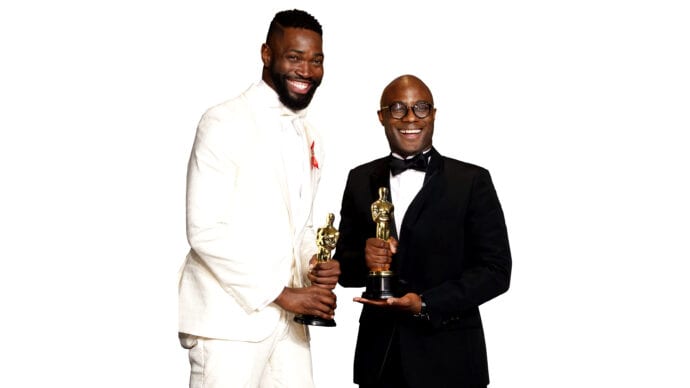
Tarell McCraney and Barry Jenkins
I was in the press room of the Academy Awards that night and shocked beyond belief at what had unfolded! Throughout that entire award season, both films were pitted against each other in an ongoing battle: The idyllic, white saviour of jazz narrative versus the rough, urban tale of addiction and self-discovery. I’m not gonna lie, it was wonderful to see Moonlight win the war.
Elektra Abundance reads fellow diner for filth
There’s nothing more gratifying than seeing privileged white people get put in their place—especially by a Black trans woman, no less. That’s what season two of the iconic Pose gave us when the ladies, while on a girl’s trip, went out for drinks at a nearby restaurant. Another diner, disturbed by their Black trans excellence, tried to get them to leave. “I know a man pretending to be a woman when I see one,” she says leaning forward. “And I see three right in front of me. This is not that kind of establishment.” But Dominique Jackson’s Elektra was not having it. “God may have blessed you with Barbies, a backyard with a pony, a boyfriend named Jake and an unwanted pregnancy that your father paid to terminate so you could go to college and major in being a basic bitch… None of these things make you a woman,” she says, pausing to “lubricate” her vocal cords with some water before continuing. “Your uniform of J. Crew culottes, fake pearls and 50 cent scrunchies cannot conceal the fact that you do not know who you are. I know our presence threatens you. We fought for our place at this table, and that has made us stronger than you’ll ever be. Now pick your jaw up off the floor and go back to your clam chowder and shallow conversations.” I can hear the ancestors applauding all over again.
Laverne Cox graces the cover of Time magazine
Credit: Courtesy time.com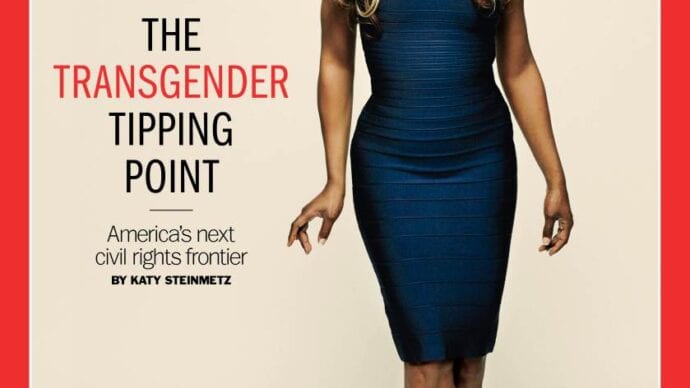
Speaking of ancestors, so many of our Black LGBTQ2 foreparents didn’t have the luxury of living out loud. Lack of knowledge, understanding and legal protections made it difficult for some to thrive as the people they were meant to be. That’s what makes Laverne Cox’s cover of Time magazine so legendary. Sure, it ushered in the proverbial “trans tipping point” that gave way for the current increase in trans representation we see on screen. But even more importantly, it represented the shattering of a ceiling of possibility that many of us didn’t know was possible—that is, until the actress became the first trans person on one of the mainstream publication’s 2014 covers. Granted, there were trans people who had been featured in magazine spreads before her, but Cox’s cover made waves we’re still wading through.
Coco Montrese defeats Alyssa Edwards
Coco Montrese Credit: Michael Parmelee/FX/AJM/STRPA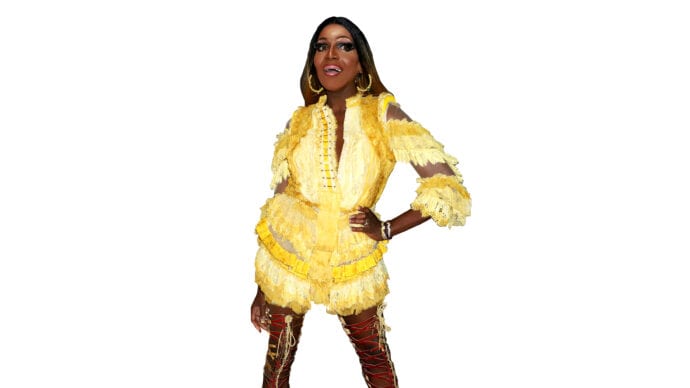
Any fan of RuPaul’s Drag Race knows of the infamous feud between Season 5 contestants and former beauty pageant rivals Coco Montrese and Alyssa Edwards. It all came to a head in their lip sync of Paula Abdul’s “Cold Hearted,” and when I tell you that both ladies pulled out all of the stops and did what they needed to do, I mean it. But it was Miss Montrese who was deemed the winner of the battle. I know this doesn’t quite rise to the level of Black history for some of you, but if a Black queen winning out over a white queen isn’t something to be celebrated—I see you, too, Dida Ritz!—I don’t know what is.
Noah’s Arc gifts the world “okurrr”
If you don’t know what Noah’s Arc is, you should be ashamed of yourself—even if you’re not Black, but especially if you are. The 2005 series written and directed by Patrik-Ian Polk was basically a Black, gay Sex and the City that followed the lives of four Black gay men (played by Darryl Stephens, Rodney Chester, Christian Vincent and Doug Spearman) living and loving in Los Angeles. When the show was cancelled after the second season, they wrapped up the storylines in a film, 2008’s Noah’s Arc: Jumping the Broom, that saw Noah marry his longtime boyfriend. In the film, Chester adlibs the word “okurrr” which has since hit the mainstream by way of the Kardashians and Cardi B. Out magazine did a whole investigation about the term’s origin. Polk even posted receipts on Instagram. All of this to say, Black queer people have been giving the world culture since the beginning of time!
Billy Porter slays the Oscars red carpet
Billy Porter Credit: O'Connor-Arroyo/AP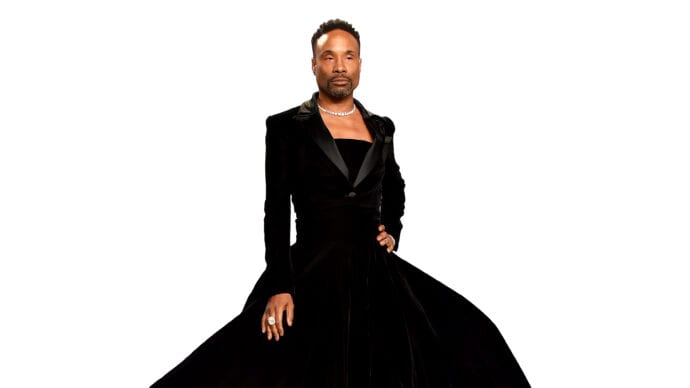
When photos of Billy Porter at the 2019 Oscars first hit social media, showing him in a luxe black velvet Christian Siriano tuxedo-gown Cinderella herself couldn’t pull off, I screamed. Because a Black gay man rebuffing all sorts of gendered red carpet norms is very much what I need each and every Black History Month. In doing so, he became one of the first men to wear a gown at the prestigious event, forever putting the ladies to shame. (FYI: We’re ignoring what he wore this year. It was a chop of the highest order, proof that even the greats stumble and fall.)
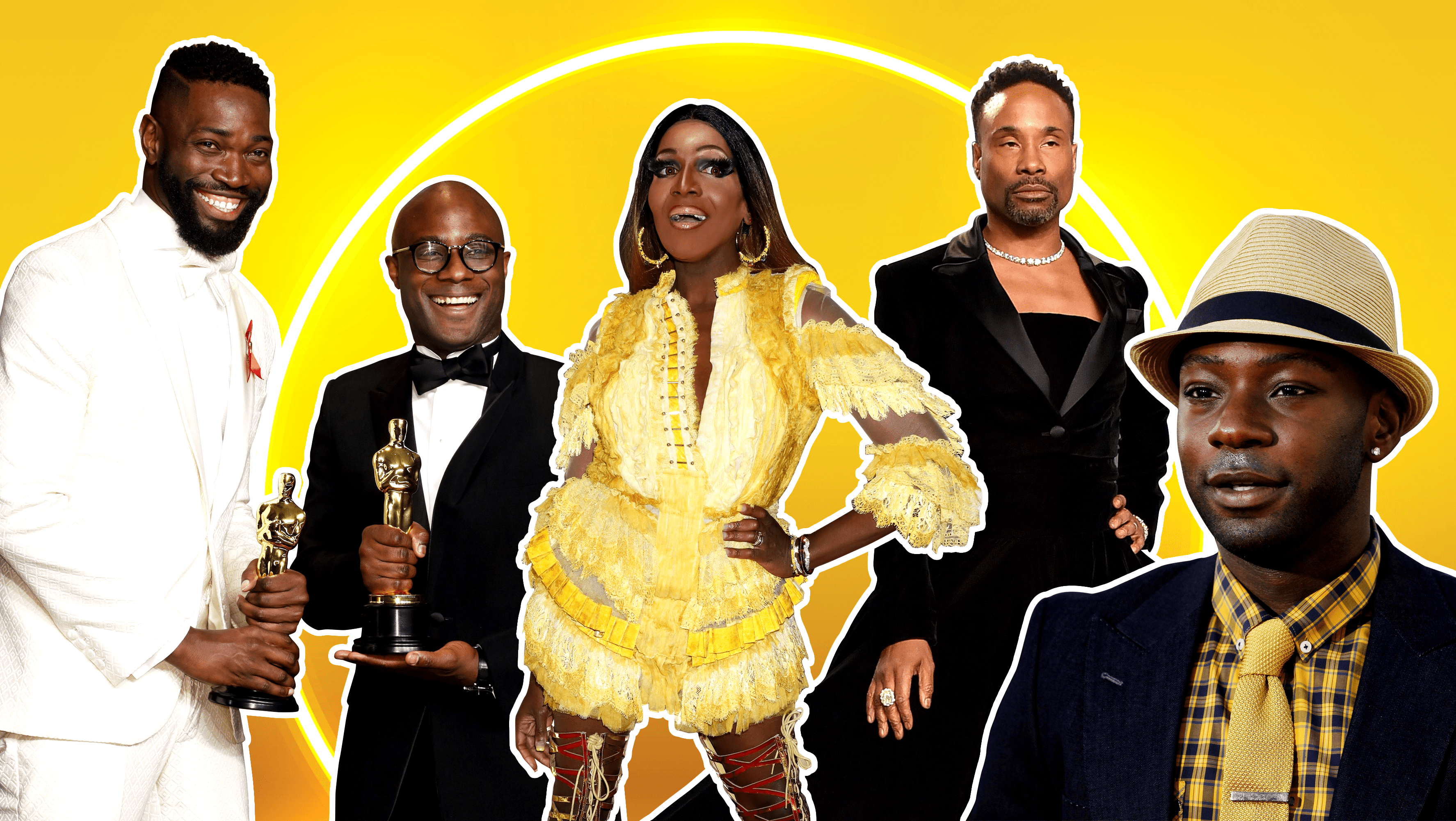

 Why you can trust Xtra
Why you can trust Xtra


